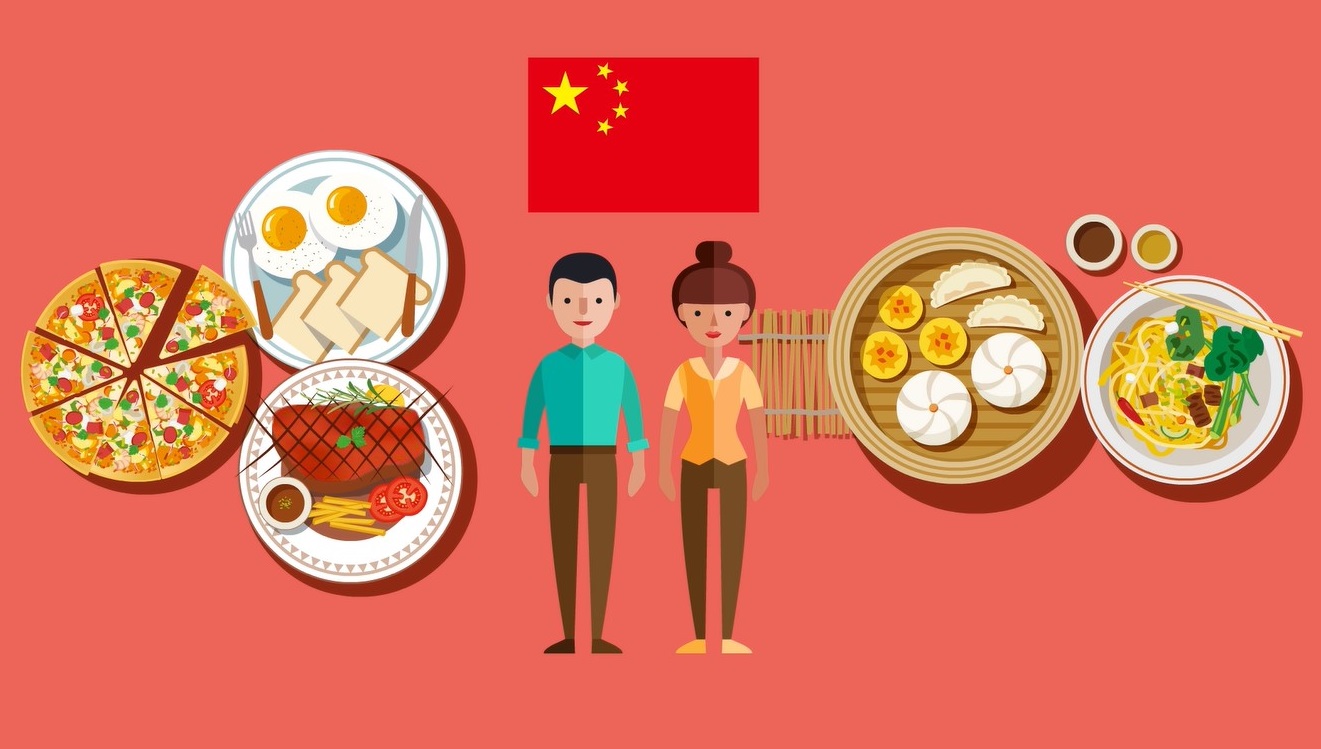
Food is an increasingly important part of the travel experience for Chinese tourists abroad. Find out which kinds of tourists are more likely to opt for local cuisine instead of Chinese restaurants when they travel, and how they integrate dining into their travel plans.
Click here to view the video.
If you are unable to view the video, please change your location in the top right corner of the navigation menu.
Video Transcript
Interview with Chinese Travelers
What style of food do you eat when traveling overseas?
– Local food! For sure!
– Local specialties.
– More Chinese food, because I am more used to it. But I will also taste local specialties.
– Normally when I go abroad, I tend to eat more Western food, like steak, or the famous kangaroo beef.
– I rarely eat Chinese food abroad, because when I am overseas I always find some nice and cheap snacks.
– Most of the time… half of the time, I will eat Chinese food when I am abroad. I really like Western-style breakfast.
– I mostly eat Western food. I really like English-style breakfast; their fried eggs are cooked very delicately. In Australia, I went to the Sydney Fish Market. The fish was cooked very well.
– Traveling as part of a group, we normally eat Chinese food, cooked by chefs from Northeast China.
How is Chinese food abroad?
– When I was in London, I went to a Chinese restaurant, but the taste was very different.
– When I went to Israel, I stayed at Dan Hotel. Their Chinese food is great. They have a Chinese chef, who is in charge of Chinese food.
– Some Chinese [restaurants] are nice, but they are much more expensive than in China.
Do you look up restaurants before traveling overseas? If so, what sources do you use?
– Mafengwo, Qyer etc.
– We are going to France, so we downloaded an app specifically to look up French food. The app’s name is “French Menu”.
– When staying at hostels, I normally ask for advice from the owner or the Chinese people I meet.
– I normally ask local friends, once I arrive at the destination.
– I often use apps like TripAdvisor.
– I mostly use Ctrip Business, but I also use Meituan.
– I do not [look restaurants up in advance]. When we travel, we are quite relaxed.
Animation
Food is extremely important in Chinese culture, and Chinese outbound travelers are no different. In 2017 they spent 14% more on dining abroad than in 2016, while reducing their spending on shopping by 37%.
According to a recent survey conducted by Ctrip, tasting authentic food at destinations is an integral part to enjoying one’s trip. 92% said they wanted to try local dishes.
Over 65% of Chinese tourists see the dining experience as an opportunity to learn more about the local culture and are willing to invest more time and money on dining.
Over 15% of survey participants consider food to be the most important service while traveling overseas。13% will even choose a destination based on its food 13%.
Whether Chinese travelers are more likely to eat local or Chinese food abroad largely depends on whether the tourists are FITs or traveling on a package tour.
Group travelers
Group travelers will normally be served a western-style breakfast, but most lunches and dinners are Chinese style.
Why?
For group travelers, the dining experiences is less important than sightseeing and shopping, so less time and money are spent on dining.
New travelers tend to have less exposure to international cuisines at home and have higher language barriers, so they find Chinese restaurants more familiar.
Older Chinese travelers, who are a large component of group travelers, are used to eating three hot meals a day, as in Chinese cuisine.
FITS
Chinese FITs are more sophisticated in their dining experiences and prefer tasting local food:
FITs come mainly from first- and second-tier cities, where international restaurants are now mainstream.
For the average Chinese traveler, trendy and well-known restaurants are carefully planned in advance, but most meals are decided more spontaneously based on price and convenience. The super wealthy opt for Michelin-starred restaurants and enjoy the exclusivity of inviting chefs to cook for private parties.
On short overseas trips, Chinese travelers will eat more local food, but on longer trips, tourists might seek out the occasional Chinese restaurant, although expectations for its quality are not as high, unless in countries with large Chinese communities such as Australia, Canada and the United States.
Prof Outbound
Chinese travelers are increasingly willing to try steak, seafood and other local specialties, becoming more and more adventurous with food. If you are catering to older and group travelers, do not forget to offer local Chinese food as an alternative.
Sign up for our free newsletter to keep up to date on our latest news
We do not share your details with any third parties. View our privacy policy.
This website or its third party tools use cookies, which are necessary to its functioning and required to achieve the purposes illustrated in the cookie policy. If you want to know more or withdraw your consent to all or some of the cookies, please refer to the cookie policy. By closing this banner, scrolling this page, clicking a link or continuing to browse otherwise, you agree to the use of cookies.